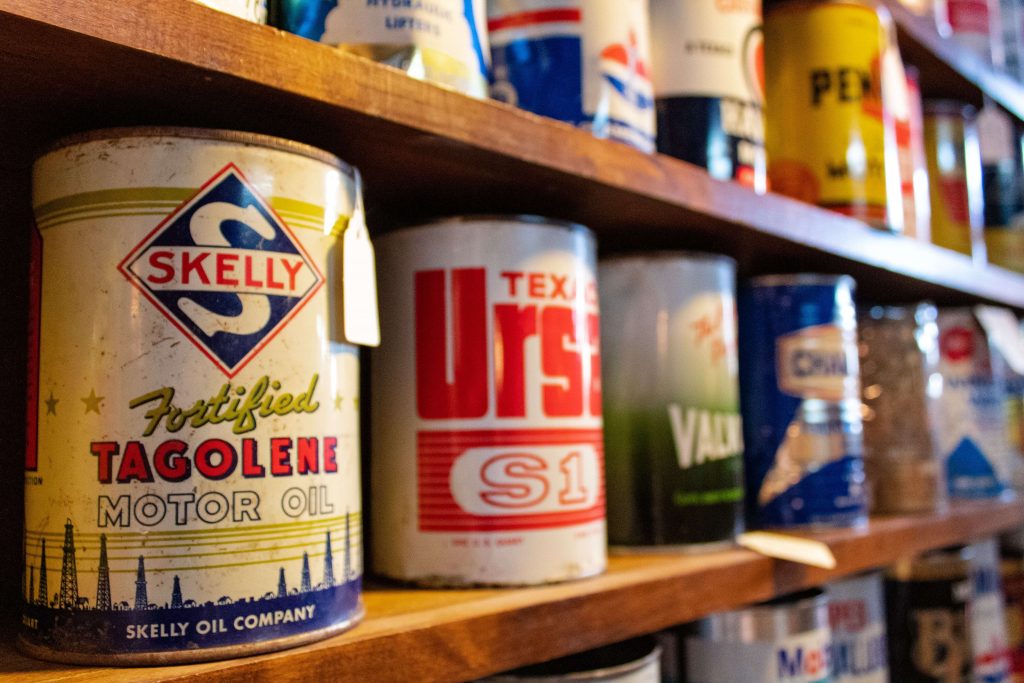One question that regularly circulates especially among the novice auto enthusiast is “Can you mix oils from different brands, categories, and viscosity?”
Knowing this might be extremely helpful to know especially if you have to urgently top up some motor oil into the engine in the middle of the road and you don’t have much of a choice around you. So let’s find out.
Mixing motor oils is not bad for your engine but you need to follow some simple rules and be careful and observant until the next oil change. Mixing of some industrial oil formulations for hydraulic systems, compressors, and gearboxes can be very bad for the seals and bearings, but that does not apply to certified motor oils.
Can You Mix Different Brands of Engine Oil?
All API (American Petroleum Institute) oils are required to be compatible.
Each product consists of a base and a set of additives that form the oil base and the individual qualities of the particular engine oil.
The possible incompatibility of the bases from different manufacturers is not a problem – different manufacturers have different technologies and ways of producing the bases, which may eventually have different physical properties (this applies especially to synthetic motor oils), but they are interchangeable as long as the rest of the API guidelines are followed in production.
Let’s put it that way: to achieve the same viscosity and temperature characteristics in a 10W-40 oil, for example, the manufacturers are solving completely different problems determined by the properties of their own base oil. A traditional synthetic does not need polymers to meet both the SAE 10W and SAE 40 viscosity targets, whereas a Group III synthetic needs a few, a Group II mineral oil needs more, and a Group III mineral oil needs a lot of polymers to thicken enough from 10W to 40.
Adding a Mineral oil to a Full Traditional Synthetic will not hurt it, but will reduce the resistance to oxidation and film strength of the Synthetic. Adding a Synthetic to a Mineral oil will give you a synthetic blend, which is better than the mineral, but does not have all the benefits of the Synthetic.
There are also different combinations of anti-wear, anti-oxidants, and detergents used in different formulations and by different brands. And brands will often change their formulation in the course of a year or two. As long as the new formulation meets the current specification, there is no need for them to advise the customer, or for the customer to worry about it.
So in other words, mixing /topping up motor oils from different brands/ manufacturers should be avoided (if possible) to maintain the maximum protection of the better formulation even though the API assures they are compatible, as you will not have the maximum protection of either formulation.
Our comparison and reviews on the best synthetic motor oil you can read here.
What should you do when mixing engine oil from different manufacturers?

The first and simplest advice is to choose an oil from the same manufacturer, but if that is not possible, choose another with the same certification in the API Donut.
Second, choose a product that has similar physic-chemical and performance characteristics to the one you already have in the engine.
For example, in the engine, you have conventional oil with 15W–40 viscosity and API CH-4 specification. It is desirable to select an engine oil with similar characteristics: same viscosity (15W-40) and comparable specification. Note: any oil that is not labeled exactly as the API states, does not necessarily meet the implied standards: The viscosity 5W-30 must be written this way. Anything like 5W30, 5W/30, or 5 W – 30 are not 5W-30 oils. They may or may not actually be the right viscosity, but they are not stating it, so not legally promising anything. And an oil that says it “meets” API SP is not the same as one that actually is registered and tested to assure compliance.
Adding a 5W-30 to this engine with the 15W-40 would reduce the overall viscosity, so it would not be recommended unless it was an emergency, and then only until a full oil change could be performed. It would be fine to add a CK-4 SAE 15W-40 to a CH-4 SAE 15W-40, even though their formulations will be different, as the CK-4 replaces the CH-4.
If you do find yourself needing to mix viscosities, this calculator, combined with the specifications for the two oils can tell you what the resultant viscosity will be: https://www.widman.biz/English/Calculators/Mixtures.html
Why DO You Mix Engine Oils?
It seems clear why it’s not recommended to mix different oils but why does this question constantly arise? The reasons are simple:
- Sometimes you are forced to top up with just whatever engine oil is available around bullet point
- Globalization and unification can have a positive effect on the oil market: engine oil bases, and in particular, additives, are produced by a small number of manufacturers, which significantly reduces their compatibility problems. The good thing is those producers are also aware of the problem and are constantly trying to resolve it.
-
When you change your oil, anywhere from 5% to 30% of the old oil is left in the engine, clinging to parts or in areas that do not drain completely, so there is always a mix. The service manual will tell the mechanic the amount to put in when rebuilding, and a different amount to put in when changing oil.
Conclusion
Mixing different kinds and engine oil brands is not recommended as a general rule. But sometimes we are forced to do so when we are stuck in the middle of nowhere and we only have just a bottle of oil that somebody offered us.
To prevent costly repairs and save you time, we advise you to have an oil change and as soon as possible if they are different viscosities, you have added mineral oil to a car that requires synthetic, or the only oil available was of an inferior quality specification.
This article is written with the kind help and expert knowledge of Richard Widman from widman.biz.




















I changed oil and oil filter on a BMW R1150 GS the other day. Had ordered 4 quarts of bel ray 10W40 from motorcycleiD. Examined first quart and then started pouring. After starting the third quart I noticed a color variant. Looked at label and it said 20W fork oil. I’d say about a cup of it was poured into the engine. Is this going to be damaging to engine and do I need to drain and redo…or anything else?
Hi Frank,
I suggest you drain it and pour a fresh 10W40 into the engine.
Regards,
Jason C.
Would it be ok to mix Castrol GTX ULTRA CLEAN synthetic blend with Castrol GTX MAGNATEC full synthetic and
Castrol GTX High Mileage synthetic blend all are SAE 5w20
Hi Desiree,
Why would you want to do that on the first place?
If it would be top up for a short distance drive it should not be a problem. Otherwise I do not recommend it.
Bests
can i mix 5w30 full synthetic with 5w30 synthetic blend?